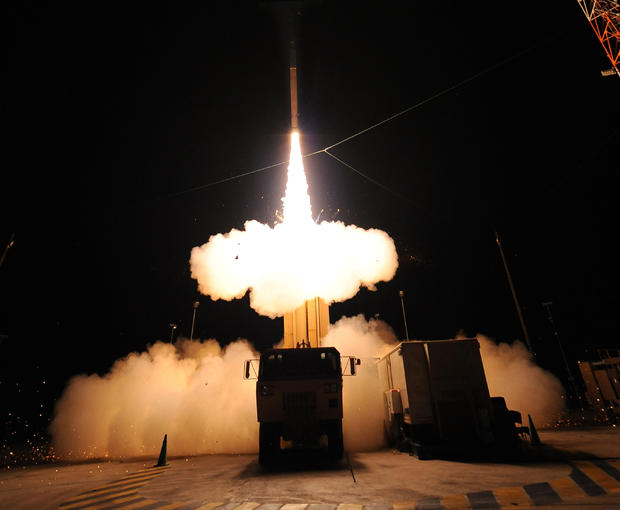North Korea fires 3 missiles as world leaders meet in China
SEOUL, South Korea -- North Korea fired three ballistic missiles off its east coast toward South Korea Monday, South Korea’s military said.
A senior Obama administration official confirmed the launch to CBS News, adding that the test was a show of force apparently timed to coincide with the G-20 economic summit in China.
The United States condemned the missile launches, with officials in Beijing saying the tests and other recent ones like it violate U.N. Security Council resolutions, and also pose a threat to aircraft and commercial ships in the region.
The officials told the Associated Press they were consulting with allies on the proper response and planned to raise concerns at the U.N. The U.S. also plans to bring up the issue during the East Asia summit in Laos this week. President Obama heads to Laos on Monday evening.
Pyongyang regularly engages in missile and rocket tests, especially when international attention is turned to Northeast Asia. World leaders are gathered for the summit of advanced and emerging economies in the city of Hangzhou in eastern China.
Beijing is the North’s only major ally, but ties between the neighbors have frayed amid a string of nuclear and missile tests and what many outsiders see as other provocations in recent years.
South Korea’s Joint Chiefs of Staff said in a statement that the three missiles, launched from the western North Korean town of Hwangju, flew across the country before splashing in the waters off its east coast, but officials did not describe the range of the missiles.
Before the firing, on the sidelines of the G-20 Monday, South Korean President Park Geun-hye criticized the North for what she called provocations that are hurting Seoul-Beijing ties.
And Chinese President Xi Jinping told his South Korean counterpart that China is opposed to the deployment of a powerful U.S. anti-missile system in her country.
During their bilateral meeting, Xi warned that “mishandling the issue is not conducive to strategic stability in the region, and could intensify disputes.”
China has responded angrily to Seoul’s decision to base the U.S. Terminal High Altitude Area Defense, or THAAD, system south of Seoul.
While Seoul and Washington say the system is intended solely to defend against North Korea’s missile threat, Beijing says it would enable the U.S. military to peer deeply into northeastern China.
Beijing’s reaction has also stoked public outrage, threatening everything from tourism exchanges to appearances by K-pop stars in China.
Monday’s missile launch came four days before the 68th anniversary of the founding of North Korea’s government, and days after South Korean and U.S. troops ended annual joint summertime military drills, which North Korea regularly describes as a dress rehearsal for invasion.
Last month, worries about the North’s weapons programs deepened after a missile from a North Korean submarine flew about 310 miles, the longest distance achieved by the North for such a weapon.
The U.N. Security Council in late August strongly condemned four North Korean ballistic missile launches in July and August, calling them “grave violations” of a ban on all ballistic missile activity.
